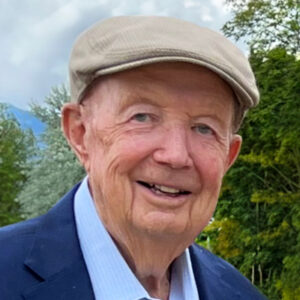The BC fruit industry lost a fellow grower, a friend and an advocate with the passing of Gerald Geen in Kelowna, on June 7, at the age of 87.
Known for his prodigious work ethic, his kind and generous nature, and a keen and inquiring mind, Geen was an example and a champion for growers in the Okanagan Valley.
His agricultural roots began at an early age, picking apples on the family farm in Kelowna and cherries for his uncle.
After completing a Bachelor of Science in agriculture at UBC, Geen began the first of five careers with a stint as assistant district horticulturist in Penticton.
He returned to university to earn his teaching certificate and taught math and science in Kelowna for nearly 20 years. He was a leader in the BC Fruit Growers Association, serving as president, and went on to a successful real estate career, retiring at the age of 72.
His “unofficial” sixth career found him as an ambassador for son David Geen’s cherry company, Jealous Fruits.
Geen planted his first 20 acres of apples early in his teaching career and went on to purchase and lease other properties.
“I remember my dad getting up at 4am to put on a couple of tanks of sprays before he would be back in the house to get ready to go to teach,” his son David recalls. “He had a tremendous work ethic but also a kind and gentle nature and a real ability to teach.” Those same attributes that benefitted Geen’s students also benefitted his family, encouraging David to follow his father’s example.
Geen waited till the age of 83 to plant his first cherry trees, but his connection with the fruit goes back to his university days. As a summer student, he worked with Dr. Karlis Lapins, the Summerland Research and Development Center cherry breeder who developed self-fertile later-season cherries including his namesake Lapins variety.
Geen always took a keen interest in his son’s cherry business, including sharing trade articles, accompanying him on trips to other cherry producing regions and closely monitoring the weather.
“The diversity of his interests and his curiosity was undimmed even in his later years,” David says.
“He was a big defender of agriculture,” he adds. “He didn’t like it when agriculture was being an afterthought and didn’t receive the government attention or fiscal attention that it should have been receiving.”


 Capital gains changes coming
Capital gains changes coming